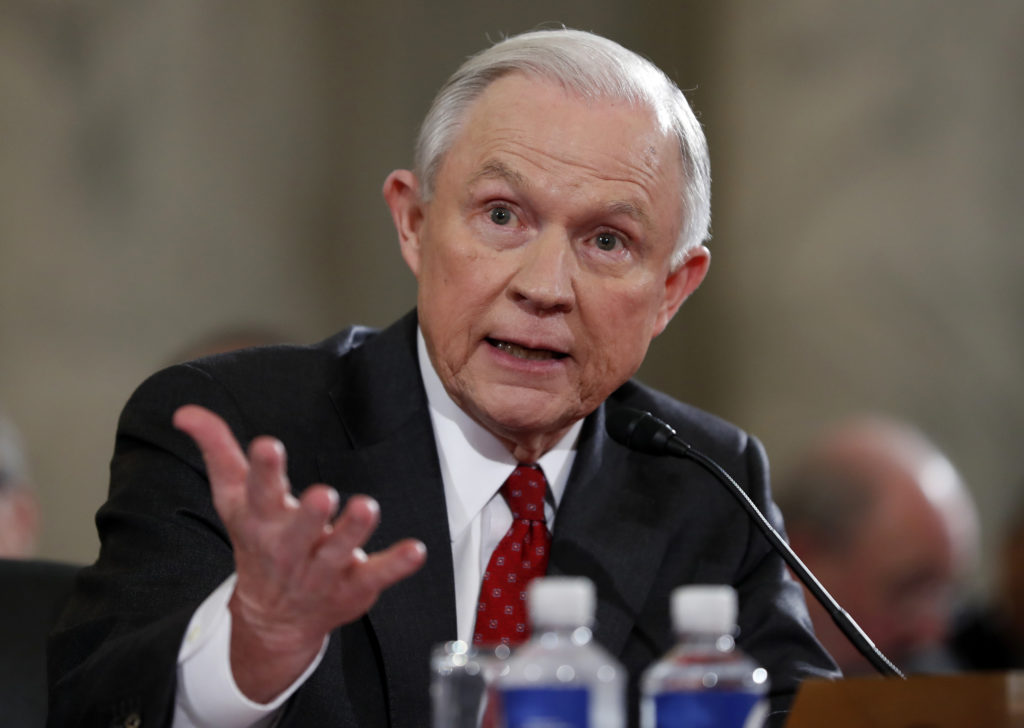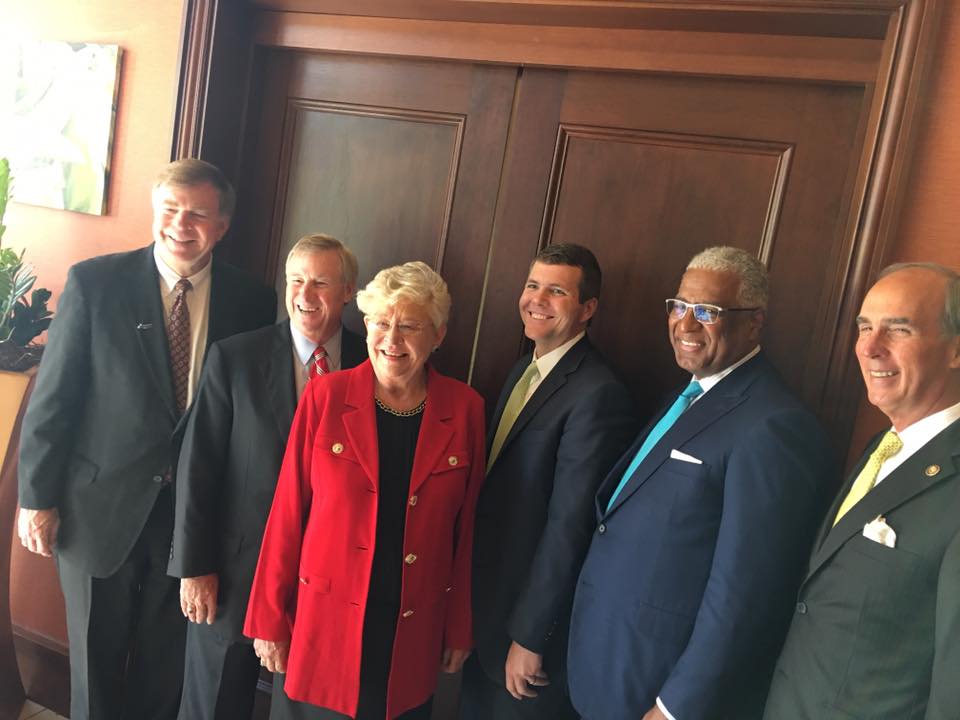Mayors grapple with grant threat after meeting with Jeff Sessions

Mayors from several U.S. cities threatened with the loss of federal grants emerged from a meeting with the attorney general Tuesday saying they remain confused about how to prove their police aren’t prohibited from cooperating with immigration authorities — a requirement for the money. The Justice Department has warned some jurisdictions that they could lose some law enforcement grant money if they don’t prove their local police and sheriffs are able to share information with federal immigration authorities about the citizenship status of people in their custody. Attorney General Jeff Sessions has labeled cities that bar such information-sharing as “sanctuary cities.” “We want all jurisdictions to enthusiastically support the laws of the United States that require the removal of criminal aliens, as many jurisdictions already do,” Sessions said in a statement released after the meeting with representatives of the U.S. Conference of Mayors. But the officials who met with Sessions said practical questions remain about how to follow the rules. For example, does that mean a sheriff’s department must tell Immigration and Customs Enforcement about an inmate’s incarceration by phone? Or will an inmate’s fingerprint information, taken by the jail and then shared with the FBI and ICE, be enough? And how long can a local jail hold someone for immigration authorities without violating their rights? “We got more clarity than we’ve ever received, but we also have other thorny issues to sort through,” said Jorge Elorza, the mayor of Providence, Rhode Island, after the hour-long meeting. It was the first time the delegation of mayors met with Sessions since the department sent nine jurisdictions letters on Friday warning they would lose key grant money unless they document cooperation with immigration authorities. The jurisdictions, which include the state of California and major cities like Chicago, New York and Philadelphia, were places the Justice Department’s inspector general previously identified as having barriers to information-sharing among local police and immigration officials. Some disputed they met the “sanctuary city” title. New Orleans Mayor Mitch Landrieu, whose city received one of the letters, said he provided Sessions with proof of compliance during Tuesday’s meeting but remained stunned the city received a warning in the first place, as it drafted its policies in consultation with federal immigration and Homeland Security officials. The delegation also included mayors from Columbia, South Carolina; Gary, Indiana; and Austin, Texas. The meeting touched on a number of other concerns related to the Trump administration’s immigration policies they said remain confusing. On a number of immigration issues, “we hear very different messages from (Homeland Security), DOJ and also the White House,” Elorza said. “Just give us clarity and please have one, clear policy so we can know where we stand.” Republished with permission of The Associated Press.
Alabama’s ‘Big 5’ mayors lay out agenda for state lawmakers

When the mayors from Alabama’s five largest cities formed an alliance in 2014, they knew there was power in numbers when it came to creating a strategy for developing a better relationship with legislators and improving their cities. After all, when you combine Montgomery, Mobile, Birmingham, Huntsville, and Tuscaloosa, you’ve accounted for nearly one third of Alabama’s population. Now, nearly four years later, the “Big 5” mayors still get together four times a year to strategize on how to best improve their cities. Last week’s “Big 5” meeting was no different, when Huntsville Mayor Tommy Battle, Birmingham Mayor William Bell, Tuscaloosa Mayor Walt Maddox, Mobile Mayor Sandy Stimpson and Montgomery Mayor Todd Strange met with Governor Kay Ivey, along with key cabinet members and state legislative leadership, to discuss several priorities with lawmakers this legislative session. “We recognize the impact policies crafted at the state level have on our cities and communities, and as leaders of local governments, we remain close to the people and know what policies will work and which ones will not,” said Battle. “We’re here to ensure our voices are heard. We look forward to working with the Governor’s office and State Legislature to craft policies that benefit our communities, promote economic development and provide a higher quality of life for citizens.” Meeting in Montgomery on Thursday, the group said maintaining and improving Alabama’s infrastructure tops their list of collective concerns since it is essential to economic development. While cities allocate larger portions of their budgets to local infrastructure, state and federally controlled highways, byways and interchanges must keep up with the demands of commerce — and that falls on the state Legislature. In keeping with the jobs and economic development theme, the mayors urged legislators to pass a bill renewing the historic tax credit, a proven component to cities’ growth and development. They also encouraged increasing the cap available for economic development in the Alabama Jobs Act. Watch a press conference from the “Big 5” meeting below:


